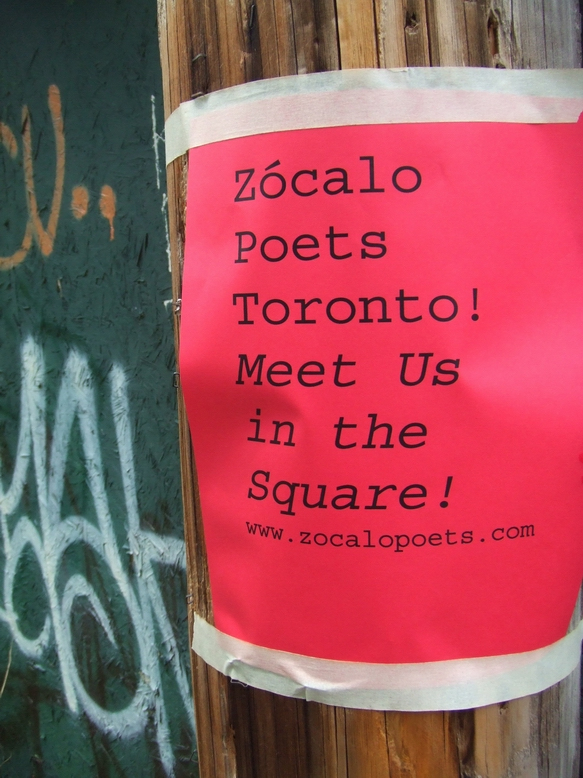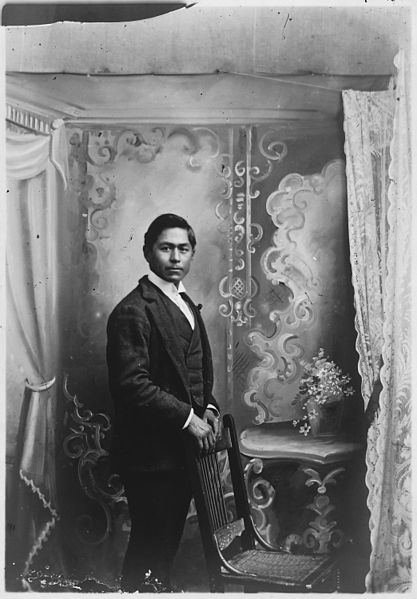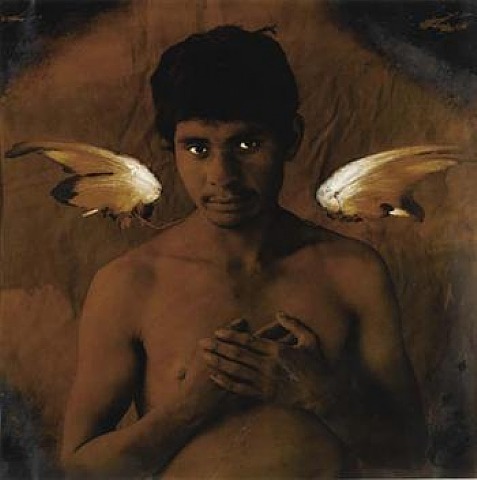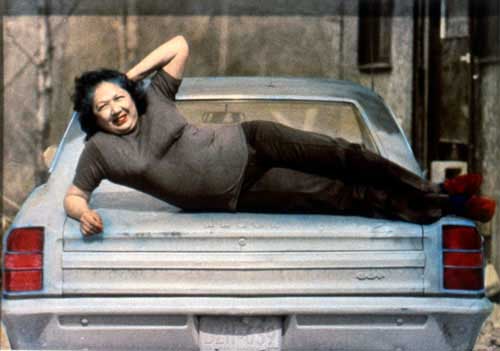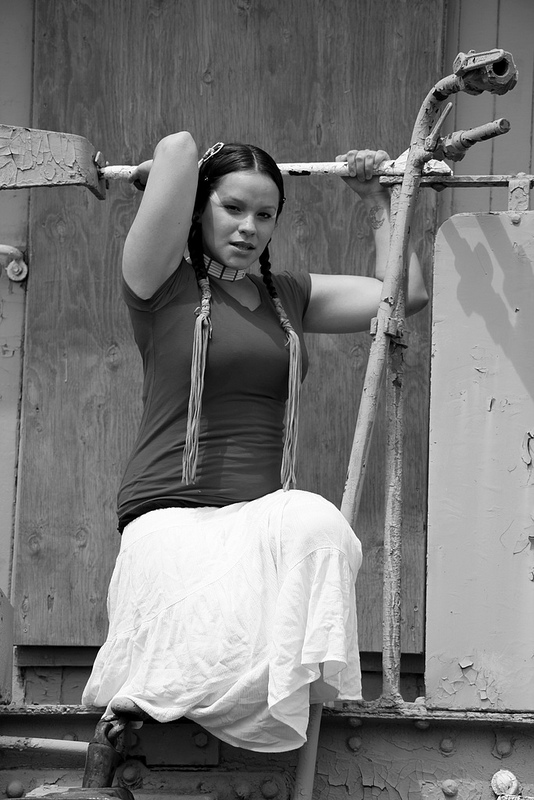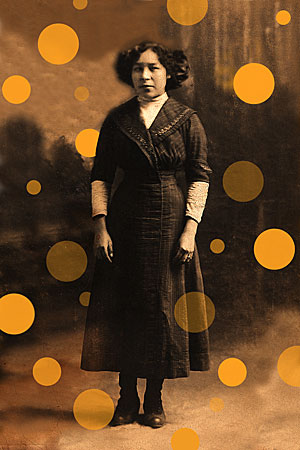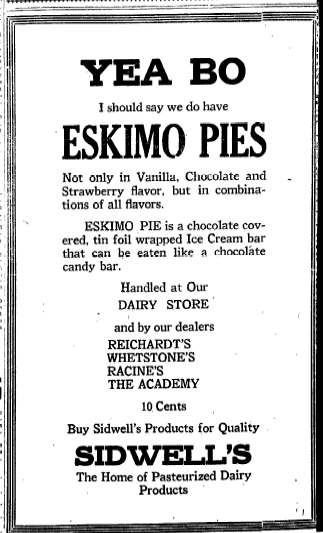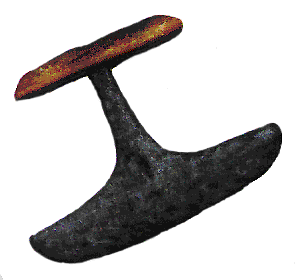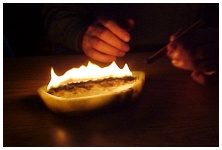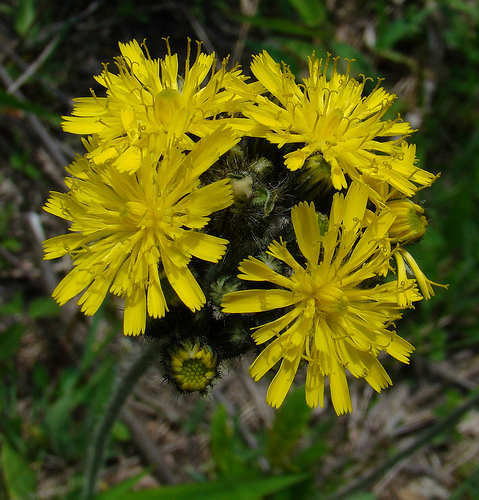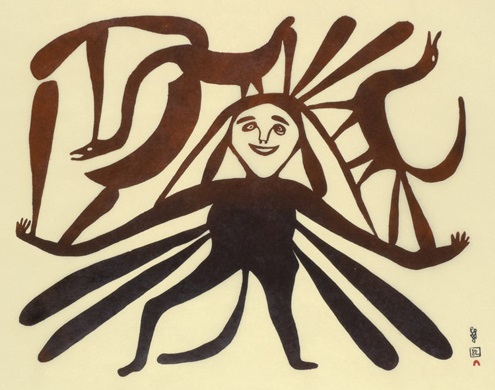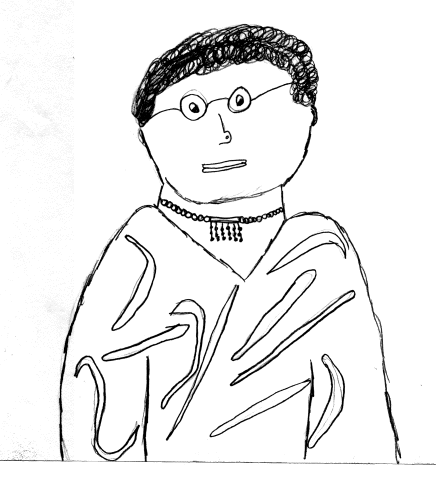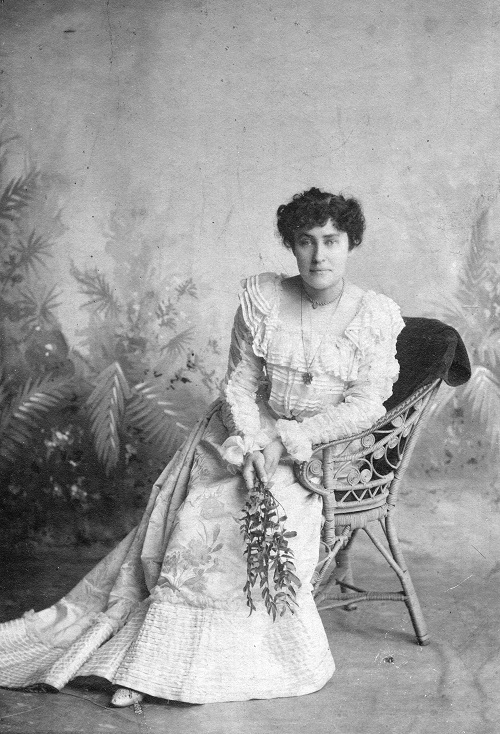Zócalo Poets…Volveremos en junio de 2013 / ZP will return June 2013
Posted: April 29, 2013 Filed under: IMAGES Comments Off on Zócalo Poets…Volveremos en junio de 2013 / ZP will return June 2013Zócalo Poets – ¡qué reunamos aquí en la gran plaza de poemas!
Zócalo Poets – meet us in the Square!
¡Mándanos tus poemas – en cualquier idioma!
Send us your poems – in any language!
zocalopoets@hotmail.com
Mosha Folger: “Leaving my Cold Self behind”
Posted: April 29, 2013 Filed under: English, Mosha Folger Comments Off on Mosha Folger: “Leaving my Cold Self behind”Mosha Folger
“Ancient Patience”
.
If you look back to the North
A couple of thousand years ago
To where the Atlantic ice fields
Battle the granite shield of the Arctic coast
You’d find a man staking claim to a land
That just doesn’t seem inhabitable
an Eskimo
a patient hunter who stood unmoving for hours
crouched over small bumps in the ice
subtle seal-breathing holes
Wicked winds pushing the temperature back down
from the comfort of twenty below
Facing the low sun so his shadow fell back
away from his goal
Waiting for a freezing breathe-out
to break the crystal white flatness of snow
.
Arm cocked, harpoon ready
eyes unblinking, blazing their own little holes
in the ice floe
Mouth closed, breath low
Because less movement, less sound
meant the night’s dinner was more likely to show
Yet sometimes that hunter
stood till the moon rose
before he finally shifted, breathed hard
and set off for home with nothing but cold toes
Nothing to bloody his wife’s arms to the elbows
Nothing to warm the guts of five kids
or silence the dogs’ moans
.
Nothing but the knowledge that
the next day when he woke
to stand again over that hole
maybe, just maybe
a seal would finally show him his nose
so the harpoon could come down
to deliver its lethal blow
Or maybe, just maybe
no
.
It’s that patience that allowed my people
to settle down and call the Arctic
our home.
. . .
“Summer Play”
.
In the Arctic desert where
the earth is sand and rocks
and the lichen cling
to the frayed edges of life
in granite fields
and the wet season feels like
three days of monsoon rains
.
In that place
patches of pavement
to a kid are
hallowed grounds
where devout children
offer their time
as sacrifice
with an endless circling of bikes
and an incessant bouncing of balls
like the pounding
and kneading
of rubber into cement
could stretch out
that holy land
.
How wondrous that
a tiny square of earth
can be home to so many
boundless dreams
.
But the reality is mostly
the sand and rocks
and gravel roads, and so
the games played adapt
games of writing
or drawing in the sand
and for one reason or another
chasing each other around
.
A television drawn in the dirt
with movies and shows
initialed inside
to be guessed at
D dot P dot S dot and
if someone gets it right
a frantic chase ensues
Or I Declare War
with a giant circle divided
into America and the USSR
Canada and sometimes Uganda
where the war of course
is chasing
and the fastest world leader
had dominion over all Man
.
And on the longest nights of daylight
baseball
Inuktitut style where groggy kids
up two days under constant sun
and stumbling
play with a rubber ball
by rules that themselves
are drowsy from the endless light
so the outfield
spans the whole town
making foul balls
as fair as any other
and the bases are run wrongwise
and whacking a runner
with the ball
is an out
.
Which means of course
the rest of the game is secondary
to learning how to throw
to anticipate
to picking off the right kid
in the right spot
every time
.
And so when a parent
with a voice that too
spans the whole town
finally calls in
one too many Expos
the real winners
aren’t on the team
with the most runs
but the team that
on the quick walk home
brags about the best
outs.
. . .
“Where have all the Shaman gone?”
.
In the blink of an eye
we’ve gone from a culture where
shaman conjured spirits and
swam, fed and bred
with giant Bowhead whales
for months at a time
And people held out hope that
sometime in their life
they’d be lucky enough to witness
that rare instance
of a distant-Inuit visit
Where men from another planet descended
to collect caches of rich seal fat
overloading their space-sleds
before packing up to head back
But blink
and we wake to a world where
all of that’s been reclassified filed and stacked
under the wild imaginations of
savage heathens
still unclean
cause they hadn’t discovered their
one true saviour and
path to heaven yet
Now elected Nunavut officials can be found
in a big hall amongst a big crowd
falling face down
wailing at the top of their lungs
praising Jesus’s name
and speaking in tongues
The holy spirit come upon their earthly vessel
leaving them convulsing
Spastic believers
shaking under the giant blue and white
Israeli flag they’ve hung
.
Inuit in the day
must have been some of the easiest
lost souls to convert
A hard frozen life of
struggle pain and loss made more palatable
with the promise of a kind of
spiritual dessert
Swallow the death cold and starvation down here
and when you die
enjoy the warm salvation up there
And some of those Arctic locals
fell hard for those lies
Or promises I guess you would call them
if you fell on the other side of the line
But it couldn’t have been made easy
or simplistic could it? No,
First the Anglicans and Catholics
split villages and
pit kin against kin
Families feuding over which clan
would really get to go
And which side
picked the wrong guy’s
rules to abide by
They’ve gotten over it now though
living in a kind harmony
that the rest of what we call
civilized society
should get to know
.
But now in the Arctic we have these
evangelical proselytizing types
whose fervour makes the Anglican and Catholic devotion
seem downright secular cause
they’ve got no HYPE
No souls being sucked
from bodies to on high
No chanting and dancing
with arms to the sky
No religious stakes in the continuation
of the state of Palestine
No possession
The craziest thing they’ve got
is a little blood into wine
Maybe a little shaman incantation
would do those folks some good
Could we at least get them a little reading
from the Koran or Talmud?
That’s unlikely though
Their faith blinds them so deep
The Good News Bible’s the only text
their eyes can see
We’ll have to get a closet shaman
to do a little midnight chanting
see if we can’t set some of those zealots free.
. . .
“Leaving my Cold Self behind”
.
Now there will be no more falling down
unique crunching packing sound
or children who know no other way to live winter
than to tumble sideways and upside-down
from snow banks ten feet off the ground
There will be no snow wind-blown
from parts unknown to all
but the most trained hunters
who brave the vast white fields alone
There will be no high-pitched wailing moan
of snowmobiles flying down
snow-packed gravel roads
No riders with grins plastered
Reveling in their temporary freedom from
small-town poor-me isolation syndrome
There will be no husky howls to wake me
to call me to their battle with the wind
the wind that howls back in kind
and relentless remorseless never fails to win
There will be no more dancing northern lights
chased from their nightly show
by southern skyline stage-fright
There will be only the warm glow
of a cold city that states its case
with what it sees as some divine right
to throw its gaudy remnants
high and loud into the night
There will be only nights where time is slowed
No sleep no comfort no peace
only this page this pen my words
and my message that
no matter the price sometimes
you just have to come in out of the cold.
. . .
“Old Indifferences”
.
Inuit existence was dependent partly on every member
of the encampment being able to at the very least get up
on their own two feet walk across the jagged tundra to follow
the moving caribou so everyone could eat
.
So we adopted an effective means of excising inefficient limbs
from the family tree that left the aged floating on ice pans and
insolent sons turned away to find their own path through
the cruel Arctic days
.
This isn’t a tradition we should reprise as it slides snugly into
its place in the still mostly unwritten Inuit histories but
it has a related convention that’s made its way down into
unofficial modern Inuit custom
.
If you’ve walked downtown Montreal you’ve seen it and in Ottawa
the spring thaw brings about the re-emergence in earnest of the
panhandling Eskimos downtown between the Mall and King Edward
on Rideau Street
.
Whether these people are a nuisance isn’t a question to me because
I have to ask if these people are friends or family maybe a second cousin
and do I have to follow protocol stop and ask a few
inconsequential questions
.
I try to avoid having to do that by changing up my Inuk stride
and remembering that from a distance I could look Thai
but Inuit could never fully ostracize so when I meet one
I stop say hi and try to be polite
.
I ask about my friend their son despite the likelihood that I
was the last to see their child and it hurts inside when they
ask and I have to tell them I hadn’t seen their kid in a little while but that
I knew he wasn’t going to trial
.
It requires a certain distance to sit back and witness these lives with blood
that courses from the same point as mine float away on slabs of concrete ice
but disease strikes and existence has always insisted
on a little bit of indifference.
.
All poems © Mosha Folger
. . .
Mosha Folger (aka M.O.) was born in Frobisher Bay, North-West Territories (now called Iqaluit, Nunavut) to an Inuk mother and American father. A poet, writer, performer, and “Eskimocentric” spoken-word/hiphop rhymer, Mosha has taken part in the Weesageechak Begins to Dance festival, also at WestFest in Ottawa, the Railway Club in Vancouver, and the Great Northern Arts Festival in Inuvik (where he was chosen a Best New Artist). His video, Never Saw It (2008), combined breakdancing with traditional Inupiat dancing, and was an official selection at the Winnipeg Aboriginal Film Festival. His very-personal film, Anaana, examined the effects of residential school (upon his mother). His hiphop song Muscox (2009), with Kinnie Starr, includes lyrics that refer to the suicide of a young friend: “I couldn’t be there when they buried my boy Taitusi … epitome of a boy who should grow into an Inuk man … artistic and witty … too smart for his own good God DAMN, too smart to live shitty … … Not knowing when he died / part of the rest of us went with him.” In North America circa 1491 (2011) – from his album String Games (with Geothermal M.C.) – he says he’ll “show you how far back in time you can date my rhyme … I’m a native son but I speak a foreign tongue – this is North America circa 1491.” And: “I’m out to win this – but the prize isn’t for the witless.”
Hiphop as self-expression for Inuit youth of the next generation younger than Folger is bursting into being, and performers such as Hannah Tooktoo of Nunavik (Northern Québec) effortlessly combine it with the unique “throat singing” of older generations of Inuk.
Mosha has been an active poetry performer in Ottawa, also a member of the Bill Brown 1-2-3 Slam collective. At Tungasuvvingat Inuit and at the Ottawa Inuit Children’s Centre he has brought the power and the fun of spoken-word and hiphop to teens and children.
. . . . .
At a studied glance: Native-American / First Nations, Métis and Inuit photographers
Posted: April 28, 2013 Filed under: IMAGES Comments Off on At a studied glance: Native-American / First Nations, Métis and Inuit photographersTsimshian photographer Benjamin Haldane_portrait of David Kininnook of Saxman, Alaska_1907
Benjamin Haldane_Little boy with toy pistol
Richard Throssel (Creek/Crow)_Smoking Cigarette_1910
Richard Throssel_Two little girls
Horace Poolaw (Kiowa)_Little boy_1929
Horace Poolaw_Trecil Poolaw Unap_1929
Martín Chambi, Quechua/Peruvian portrait photographer_Self-portrait_1922
Martín Chambi_Ezequiel Arce’s Family with their harvest of potatoes_Cuzco, Perú_ 1934
Luis González Palma_Mestizo photographer from Guatemala_La Lotería II_1989
Luis González Palma_El Angel_1990
Shelley Niro (Bay of Quinte Mohawk)_The Rebel_1987
Shelley Niro_Mohawks in beehives_1991
Nish Photoluver_The Rez 2000
Nish Photoluver_Clothesline, Northern Ontario_2000
Nish Photoluver_Wow
Hulleah J. Tsinhnahjinnie (Seminole-Muscogee-Navajo)_Grandma_2003
Hulleah J. Tsinhnahjinnie_Chi-bon_2003
Jordan Bennett (Mi’kmaw skateboarder/photographer)_Traditional Mi’kmaq Surfboard_2007
Beckie Etukeok (Inupiaq/Tlingit)_Bipsurruk (Red Salmon)_2009
Peggy Fontenot_Robert Banks, Cherokee Freedman, 2008_from Fontenot’s Merging Cultures series about Black Indians
Kimowan Metchewais (Cree, Cold Lake First Nation)_Cold Lake
Kimowan Metchewais_War Pony_2010
Larry McNeil (Tlingit)_photo-collage from I’m Angry You Are Bad: Raven, carbon emissions, and the global climate crisis_2011
“Yeah Bro, I should say we do have Eskimo Lies”: the poetry of Inuit writer Norma Dunning
Posted: April 25, 2013 Filed under: English, Inuktitut, Norma Dunning Comments Off on “Yeah Bro, I should say we do have Eskimo Lies”: the poetry of Inuit writer Norma Dunning.
Eskimo Pie I
.
Found on Wikipedia under “Eskimo Pie”:
.
My response to the ad:
.
YEAH BRO
I should say we do have
ESKIMO LIES
Not only in N. Canada and
Urban centers, but in
combina-
tions of all flavors.
Eskimo Lies is a
sugercoated
conception of Northern
Peoples
Handled at Our
GOVERNMENT OFFICES
and by our general public
LIBERALS, PCs, RCMP
& THE
ACADEMY
NO SENSE
Buy Eskimo Lies – A Quality
Product of Canada
The Home of PASTEURIZED
Inuit History
.
Eskimo Pie II
Oh give me a piece of that Eskimo Pie.
.
16 crushed chocolate wafers
4 tbsp of melted butter
.
An entire grouping of humanity
Secured in residential school, left to die
Let me see that chubby little brown face
Filled with 32 marshmallows
.
1/2 cup milk
1/8 tsp m.s.g.
Smiling inside a padlocked fur-ringed space
Include 1 tbsp of vanilla and
1 cup of heavy cream – whipped,
Beat the little heathens
Put them in their place
Melt the marshmallows,
Along with their mother tongues
Whiten with milk,
.
Add the salt
To the wounds
.
And vanilla in a double-boiler
Turn the heat on high
Bring to a boil
Simmer and strain
Removing all their relatives
Cool the filling
Fold in the whipped cream
Pour into a pie plate
.
Slice and Assimilate
.
To the Eskimos of Canada
.
We came here to make them better
Teaching them church and knitting sweaters
.
Changed their names and made them right
These dirty little animals full of fight
.
Taught them how to wash their hands
Took them off their hostile lands
.
Bringing them to our enlightened age
Gave them names on a page
.
They’re happier than they’ve ever been
A better side of life they have finally seen
.
Our mission is soon complete
They will no longer eat raw meat
.
We’ll soldier on in our god’s name
These lowly people we will tame
.
They will thank us for this soon one day
And on their land we will forever stay
.
The Necklace
(Or Forms of 20th Century Shackling – The Eskimo Identification Canada System 1941-1978)
I gave you a necklace made out of sting
Such a pretty thing, such a pretty thing
I told you to wear forever and always
Such a pretty thing, such a pretty thing
I had a number put on it
Just for me!
I told you to remember it always
I did oh I did and oh I still do!
I said it was better than your name
It is oh it is and oh it still is!
If you didn’t have it I won’t be yours
Oh please, no threats, I’m yours always
Without it there would be no happy ever after
Oh please, no threats, no threats
PLEASE!
I told you to write it on all pieces of paper
I will and I have and I must and I do!
If it gets lost – we’re over!
I won’t and I haven’t and I must say I do!
This necklace is the best thing that’s ever
Happened to you
I seem to be lacking air or is
it hair or do I
dare say,
“I’m turning blue”?
.
Kudlik/Qulliq
by
(Norma – in Inuktitut)
.
There is more to this lamp than the lighting
of it. Shared in its shadows are laughter,
crying and the tears of so long ago.
The tears of a sickness changing us for
ever. Echoes of tuberculosis.
Once we were well and we gathered manniq. (wick of moss)
We slept in peace under spring stars hearing
Our giggles and sighs mixed only with the
sounds of the earth. Disease took us from
home and away, far away to stay locked
in the prison of white walls. To cough up
blood of my puvak and long for home. (lung)
No more the qulliq to warm our spirits (stone lamp)
Warm our hearts, heat our lives, feed our stomachs.
Our revolution came in Quallnaat
Bacteria and the light of the
qulliq grew dim. Black wisps answered our cries
blowing out the wick of what we once were.
.
For Mini Aodla-Freeman, the last living Inuit woman in Canada who knows the traditional uses of the Qulliq. She is the last keeper of this traditional Inuit flame.
. . . . .
In the poet’s words:
My name is Norma Dunning. I am a Beneficiary of Nunavut and a first-year M.A. Student at the University of Alberta with the inaugural class of M.A. Students in the Faculty of Native Studies. I am an urban Inuit writer. My M.A. Thesis is based on the Eskimo Identification Canada System which ran in Canada from 1941 to 1978. It is a system, simply put, that replaced Inuit names with numbers. The University of Alberta has been very kind towards my writing and I have been awarded the James Patrick Follinsbee Prize for Creative Prose (2011) and the Stephen Kapalka Memorial Prize for Prose (2012). My creative work, both prose and poetry, has never been published in hard copy. This does not stop me from writing and I would encourage all writers to remember that we write because of what is inside of us needing to get out onto a page.
Matna – Norma
Earth Day poems: “I’ve wanted to speak to the world for sometime now about you.”
Posted: April 22, 2013 Filed under: English, Maurice Kenny | Tags: Poems for Earth Day Comments Off on Earth Day poems: “I’ve wanted to speak to the world for sometime now about you.”Maurice Kenny (Mohawk poet and teacher, born 1929)
new song
.
We are turning
eagles wheeling sky
We are rounding
sun moving in the air
We are listening
to old stories
Our spirits to the breeze
the voices are speaking
Our hearts touch earth
and feel dance in our feet
Our minds in clear thought
we speak the old words
We will remember everything
knowing who we are
We will touch our children
and they will dance and sing
As eagle turns, sun rises, winds blow,
ancestors, be our guides
Into new bloodless tomorrows.
. . .
ceremony
.
urgent/
night/ and not
even rain could
stop love-
making
in shadows
.
street unbuckled
rain slid down neck/
nipple/crotch
exposed to hands
all elements/
ancient mouth
tender as thistle-down
swallowed centuries
.
spent urgency
.
life re-newed/continues
stories are told
under winter moons
big orange melons
purple plums
.
Seminoles dance in this light
celebrate
Comanches dance in this light
celebrate, too/together
fixed in sweat/suction
of flesh to flesh
celebrate, too
.
rain/ and rain
washes sky clean
everything
is green
green sun, green moon, green dreams
and there is only
the good feeling
.
now to sleep
. . .
curt suggests
.
Passing through,
wolf presses snow,
disappears
as though winter moon
washed the fallen snow
drifting the mountain slope.
.
He howls
and I’m assured things
of the old mountain will
not only stay but survive.
It is all about survival…
not the internet, online
or standing, waiting for a big mac.
Humans have survived,
some say, perhaps too long.
Beauty. Nobility. Poetry.
Rewards for the warrior
who brought the village fire.
.
Wolf is always hunting.
Winter is long and frozen,
dark and deadly dangerous.
Farmers are armed.
Sleep without fat is eternal
and pups are bones in enemy’s teeth.
.
The politic is not the language,
not even the song belongs to the voice
until fires are built, walls erected
and it is safe to sleep. Then sing.
.
Raccoon falls from the elm,
a high branch.
Wolf watches from the hill.
Vocables quaver.
Rocks learn to sing
in the water of the swift river.
Now we stand erect
and walk through the green woods.
Our songs are safely sculpted
into ice and pray
it won’t melt
to the touch of the ear bending to echoes.
.
I don’t care if you are only passing
through these woods. Stay.
. . .
hawkweed
.
I’ve wanted to speak to the world
for sometime now about you.
There are many who confuse you with another wild
flower which is, in truth,
no relation not even
a distant, kissing cousin.
You don’t even look alike
nor survive in the same country-side.
Many people claim you are Indian
Paint Brush. Just today
a friend spotted your bloom
decorating the roadside grasses
and called out… “O there’s a beauty…
a paint brush.” I had
to explain the brush blooms
out west…Oklahoma…and
is red. Period.
.
You, on the other hand,
blossom here in the east
and your bloom is fire-
red or orange and sometimes
yellow and you came on the
Mayflower with the others
from across the seas.
.
Farmers think the hawk eats
your blossoms for sight,
vision, but we’re happy
you show up every spring
on the roadside or in the field
bringing colour to morning
though dotted with dew
or snake-spittle, bee-balm.
Up here in the Adirondacks
I’ve seen you rise in snow
when April/May arrived late.
.
Well, all I’ve really got
to say is if the farmer is right
then the red-tail is pretty smart
and deserves your sight.
Now we have to get the the other
humans to admit just who you are.
. . . . .
All poems © Maurice Kenny, from his collection In the Time of the Present (2000)
Photograph: Hieracium caespitosum a.k.a. meadow or field hawkweed
Poems for Earth Day: “The earth of my blood”: O’Connor, Ben the Dancer, La Fortune
Posted: April 22, 2013 Filed under: Ben the Dancer, English, Lawrence William O'Connor, Richard La Fortune / Anguksuar | Tags: Native-American poets, Poems for Earth Day Comments Off on Poems for Earth Day: “The earth of my blood”: O’Connor, Ben the Dancer, La FortuneLawrence William O’Connor (Winnebago poet)
“O Mother Earth”
.
Never will I plough the earth.
I would be ripping open the breast of my mother.
.
Never will I foul the rivers.
I would be poisoning the veins of my mother.
.
Never will I cut down the trees.
I would be breaking off the arms of my mother.
.
Never will I pollute the air.
I would be contaminating the breath of my mother.
.
Never will I strip-mine the land.
I would be tearing off her clothes, leaving her naked.
.
Never will I kill the wild animals for no reason.
I would be murdering her children, my own brothers and sisters.
.
Never will I disrespect the earth in anyway.
Always will I walk in beauty upon the earth my mother,
Under the sky my father,
In the warmth of the sun my sister,
Through the glow of the moon my brother.
. . .
Ben the Dancer (Yankton Lakota-Sioux, Rosebud (Sicangu), South Dakota)
“My Rug Maker Fine”
.
slowly as I laid my head
upon his chest
the rain outside beckoned
for me to kiss him
we forgot the names that were called
and as I looked into his deep brown eyes
I saw the earth of his people
the earth of his blood
and the earth of his birth
looking at me
.
there was much to be said
on that rainy night
but talking came secondary
and not much was said
some names were meant to scald
they can break steadfast ties
then I heard the earth of his people
the earth of his blood
and the earth of his birth
telling me
.
he left on that rainy night
without a kiss
he went home forever
the rain beckoned at him to go
the earth of his people told me
he was going home
the earth of his blood called him
to come home
and the earth of his birth took him
from me
.
oh how my heart went on a dizzy flight
I will him miss
knowing this was going to sever
our hearts and leave a hole
I know the drum of his people
that called him home
I feel the pulse of his blood
that drew him there
I smell the scent of his birth
that made me let him go
.
I have endured the name
the scalding brand
I stand on my own feet now
the earth of my people
the earth of my blood
and the earth of my birth
told me to let you go
I listened
I know now
and we are free.
. . .
Richard La Fortune/Anguksuar (Yupik Eskimo, born 1960, Bethel, Kuskokvagmiut, Alaska)
.
I have picked a bouquet for you:
I picked the sky,
I picked the wind,
I picked the prairies with their waving grasses,
I picked the woods, the rivers, brooks and lakes,
I picked the deer, the wildcat, the birds and small animals.
I picked the rain – I know you love the rain,
I picked the summer stars,
I picked the sunshine and the moonlight,
I picked the mountains and the oceans with their mighty waters.
I know it’s a big bouquet, but open your arms wide;
you can hold all of it and more besides.
.
Your mind and your love will
let you hold all of this creation.
. . . . .
All poems © each poet: Lawrence William O’Connor, Ben the Dancer, Richard La Fortune
Selections are from a compilation of “Gay American Indian” (including Lesbian and Two-Spirits) poetry, short stories and essays – Living the Spirit – published in 1988.
Poems for Earth Day: Rita Joe’s “Mother Earth’s Hair”, “There is Life Everywhere” and “When I am gone”
Posted: April 22, 2013 Filed under: English, Rita Joe | Tags: Poems for Earth Day Comments Off on Poems for Earth Day: Rita Joe’s “Mother Earth’s Hair”, “There is Life Everywhere” and “When I am gone”Rita Joe (Mi’kmaw poet, 1932-2007)
“Mother Earth’s Hair”
.
In August 1989 my husband and I were in Maine
Where he died, I went home alone in pain.
We had visited each reservation we knew
Making many friends, today I still know.
Near a road a woman was sitting on the ground
She was carefully picking strands of grass
Discarding some, holding others straight
I asked why was she picking so much.
She said, “They are ten dollars a pound.”
My husband and I sat alongside of her, becoming friends.
A bundle my husband picked then, later my treasure.
I know, as all L’nu’k* know,
that sweetgrass is mother earth’s hair
So dear in my mind my husband picking shyly for me
Which he never did before, in two days he will leave me.
Today as in all days I smell sweetgrass, I think of him
Sitting there so shy, the picture remains dear.
.
*L’nu = an Aboriginal person
. . .
“There is Life Everywhere”
.
The ever-moving leaves of a poplar tree lessened my anxiety as I walked through the woods trying to make my mind work on a particular task I was worried about. The ever-moving leaves I touched with care, all the while talking to the tree. “Help me,” I said. There is no help from anywhere, the moving story I want to share. There is a belief that all trees, rocks, anything that grows, is alive, helps us in a way that no man can ever perceive, let alone even imagine. I am a Mi’kmaw woman who has lived a long time and know which is true and not true, you only try if you do not believe, I did, that is why my belief is so convincing to myself. There was a time when I was a little girl, my mother and father had both died and living at yet another foster home which was far away from a native community. The nearest neighbours were non-native and their children never went near our house, though I went to their school and got along with everybody, they still did not go near our home. It was at this time I was so lonely and wanted to play with other children my age which was twelve at the time. I began to experience unusual happiness when I lay on the ground near a brook just a few metres from our yard. At first I lay listening to the water, it seemed to be speaking to me with a comforting tone, a lullaby at times. Finally I moved my playhouse near it to be sure I never missed the comfort from it. Then I developed a friendship with a tree near the brook, the tree was just there, I touched the outside bark, the leaves I did not tear but caressed. A comforting feeling spread over me like warmth, a feeling you cannot experience unless you believe, that belief came when I was saddest. The sadness did not return after I knew that comfortable unity I shared with all living animals, birds, even the well I drew water from. I talked to every bird I saw, the trees received the most hugs. Even today I am sixty-six years old, they do not know the unconditional freedom I have experienced from the knowledge of knowing that this is possible. Try it and see. There is life everywhere, treat it as it is, it will not let you down.
. . .
“When I am gone”
.
The leaves of the tree will shiver
Because aspen was a friend one time.
Black spruce, her arms will lay low
And across the sky the eagles fly.
The mountains be still
Their wares one time like painted pyramids.
All gold, orange, red splash like we use on face.
The trees do their dances for show
Like once when she spoke
I love you all.
Her moccasin trod so softly, touching mother
The rocks had auras after her sweat
The grass so clean, she pressed it to cheek
Every blade so clean like He wants you to see.
The purification complete.
“Kisu’lkw” you are so good to me.
I leave a memory of laughing stars
Spread across the sky at night.
Try counting, no end, that’s me – no end.
Just look at the leaves of any tree, they shiver
That was my friend, now yours
Poetry is my tool, I write.
. . . . .
For more of Rita Joe’s poems please see our April 11th posts…
Alootook Ipellie: Artist, Writer, Dreamer !
Posted: April 11, 2013 Filed under: Alootook Ipellie, English, Writer-Artist-Dreamer: Alootook Ipellie Comments Off on Alootook Ipellie: Artist, Writer, Dreamer !
ZP_The agony and the ecstasy_illustration for a short story in Arctic Dreams and Nightmares_Alootook Ipellie, 1993
Alootook Ipellie (1951-2007)
“It Was Not ‘Jajai-ja-jiijaaa‘ Anymore – But ‘Amen’”
.
It was in the guise of the Holy Spirit
That they swooped down on the tundra
Single-minded and determined
To change forever the face
Of ancient Spirituals
These lawless missionaries from places unknown
Became part of the landscape
Which was once the most sacred tomb
Of lives lived long ago
The last connection to the ancient Spirits
Of the most sacred land
Would be slowly severed
Never again to be sensed
Never again to be felt
Never again to be seen
Never again to be heard
Never again to be experienced
Sadness supreme for the ancient culture
Jubilation in the hearts of the converters
Where was justice to be found?
They said it was in salvation
From eternal fire
In life after death
And unto everlasting Life in Heaven
A simple life lived
On the sacred land was no more
The psalm book now replaced
The sacred songs of shamans
The Lord’s Prayer now ruled
Over the haunting chant of revival
It was not ‘Jajai-ja-jiijaaa’ anymore
But-
‘Amen’
. . .
“How noisy they seem”
.
I saw a picture today, in the pages of a book.
It spoke of many memories of when I was still a child:
Snow covered the ground,
And the rocky hills were cold and gray with frost.
The sun was shining from the west,
And the shadows were dark against the whiteness of the
Hardened snow.
.
My body felt a chill
Looking at two Inuit boys playing with their sleigh,
For the fur of their hoods was frosted under their chins,
From their breathing.
In the distance, I could see at least three dog teams going away,
But I didn’t know where they were going,
For it was only a photo.
I thought to myself that they were probably going hunting,
To where they would surely find some seals basking on the ice.
Seeing these things made me feel good inside,
And I was happy that I could still see the hidden beauty of the land,
And know the feeling of silence.
. . .
“Walking Both Sides of an Invisible Border”
.
It is never easy
Walking with an invisible border
Separating my left and right foot
I feel like an illegitimate child
Forsaken by my parents
At least I can claim innocence
Since I did not ask to come
Into this world
Walking on both sides of this
Invisible border
Each and everyday
And for the rest of my life
Is like having been
Sentenced to a torture chamber
Without having committed a crime
Understanding the history of humanity
I am not the least surprised
This is happening to me
A non-entity
During this population explosion
In a minuscule world
I did not ask to be born an Inuk
Nor did I ask to be forced
To learn an alien culture
With its alien language
But I lucked out on fate
Which I am unable to undo
I have resorted to fancy dancing
In order to survive each day
No wonder I have earned
The dubious reputation of being
The world’s premier choreographer
Of distinctive dance steps
That allow me to avoid
Potential personal paranoia
On both sides of this invisible border
Sometimes the border becomes so wide
That I am unable to take another step
My feet being too far apart
When my crotch begins to tear
I am forced to invent
A brand new dance step
The premier choreographer
Saving the day once more
Destiny acted itself out
Deciding for me where I would come from
And what I would become
So I am left to fend for myself
Walking in two different worlds
Trying my best to make sense
Of two opposing cultures
Which are unable to integrate
Lest they swallow one another whole
Each and everyday
Is a fighting day
A war of raw nerves
And to show for my efforts
I have a fair share of wins and losses
When will all this end
This senseless battle
Between my left and right foot
When will the invisible border
Cease to be.
.
(1996)
. . . . .
Alootook Ipellie
“Self-Portrait: Inverse Ten Commandments” (1993)
.
I woke up snuggled in the warmth of a caribou-skin blanket during a vicious storm. The wind was howling like a mad dog, whistling whenever it hit a chink in my igloo. I was exhausted from a long, hard day of sledding with my dogteam on one of the roughest terrains I had yet encountered on this particular trip.
.
I tried going back to sleep, but the wind kept waking me as it got stronger and even louder. I resigned myself to just lying there in the moonless night, eyes open, looking into the dense darkness. I felt as if I was inside a black hole somewhere in the universe. It didn’t seem to make any difference whether my eyes were opened or closed.
.
The pitch darkness and the whistling wind began playing games with my equilibrium. I seemed to be going in and out of consciousness, not knowing whether I was still wide awake or had gone back to sleep. I also felt weightless, as if I had been sucked in by a whirlwind vortex.
.
My conscious mind failed me when an image of a man’s face appeared in front of me. What was I to make of his stony stare – his piercing eyes coloured like a snowy owl’s, and bloodshot, like that of a walrus?
.
He drew his clenched fists in front of me. Then, one by one, starting with the thumbs, he spread out his fingers. Each finger and thumb revealed a tiny, agonized face, with protruding eyes moving snake-like, slithering in and out of their sockets! Their tongues wagged like tails, trying to say something, but only mumbled, since they were sticking too far out of their mouths to be legible. The pitch of their collective squeal became higher and higher and I had to cover my ears to prevent my eardrums from being punctured. When the high pitched squeal became unbearable, I screamed like a tortured man.
.
I reached out frantically with both hands to muffle the squalid mouths. Just moments before I grabbed them, they faded into thin air, reappearing immediately when I drew my hands back.
.
Then there was perfect silence.
I looked at the face, studying its features more closely, trying to figure out who it was. To my astonishment, I realized the face was that of a man I knew well. The devilish face, with its eyes planted upside down, was really some form of an incarnation of myself! This realization threw me into a psychological spin.
.
What did this all mean? Did the positioning of his eyes indicate my devilish image saw everything upside down? Why the panic-stricken faces on the tips of his thumbs and fingers? Why were they in such fits of agony? Had I indeed arrived at Hell’s front door and Satan had answered my call?
.
The crimson sheen reflecting from his jet-black hair convinced me I had arrived at the birthplace of all human fears. His satanic eyes were so intense that I could not look away from them even though I tried. They pulled my mind into a hypnotic state. After some moments, communicating through telepathy, the image began telling me horrific tales of unfortunate souls experiencing apocalyptic terror in Hell’s Garden of Nede.
.
The only way I could deal with this supernatural experience was to fight to retain my sanity, as fear began overwhelming me. I knew it would be impossible for me to return to the natural, physical world if I did not fight back.
.
This experience made my memory flash back to the priestly eyes of our local minister of Christianity. He had told us how all human beings, after their physical death, were bound by the doctrine of the Christian Church that they would be sent to either Heaven or Hell. The so-called Christian minister had led me to believe that if I retained my good-humoured personality toward all mankind, I would be assured a place in God’s Heaven. But here I was, literally shrivelling in front of an image of myself as Satan incarnate!
.
I couldn’t quite believe what my mind telepathically heard next from this devilish man. As it turned out, the ten squalid heads represented the Inverse Ten Commandments in Hell’s Garden of Nede. To reinforce this, the little mouths immediately began squealing acidic shrills. They finally managed to make sense with the motion of their wagging tongues. Two words sprang out thrice from ten mouths in unison: “Thou Shalt! Thou Shalt! Thou Shalt!” I could not believe I was hearing those two words. Why was I the object of Satan’s wrath? Had I been condemned to Hell’s Hole?
.
My mind flashed back to the solemn interior of our local church once more where these words had been spoken by the minister: “God made man in His own image.” In which case, the Satan could also have made man in his own image. So I was almost sure that I was face to face with my own image as the Satan of Hell!
.
“Welcome, welcome, welcome,” the image said, his hands reaching for mine. “Welcome to the Garden of Nede.”
.
I found his greeting repulsive, more so when he wrapped his squalid fingertips around my hands. The slithering eyes retreated into their sockets, closing their eyelids. The wagging tongues began slurping and licking my hands like hungry tundra wolves. I pulled my hands away as hard as I could but wasn’t able to budge them.
.
The rapid motion of their sharp tongues cut through my skin. The cruelty inflicted on me was unbearable! Blood was splattering all over my face and body. I screamed in dire pain. As if by divine intervention, I instinctively looked down between the legs of my Satanic image. I bolted my right knee upward as hard as I could muster toward his triple bulge. My human missile hit its target, instantly freeing my hands. In the same violent moment, the image of myself as the Satan of Hell’s Garden of Nede disappeared into thin air. Only a wispy odour of burned flesh remained.
.
Pitch darkness once again descended all around. Total silence. Calm. Then, peace of mind…
.
Some days later, when I had arrived back in my camp, I was able to analyze what I had experienced that night. As it turned out, my soul had gone through time and space to visit the dark side of myself as the Satan incarnate. My soul had gone out to scout my safe passage to the cosmos. The only way any soul is freed is for it to get rid of its Satan incarnate at the doorstep of Hell’s Garden of Nede. If my soul had not done what it did, it would have remained mired in Hell’s Garden of Nede for an eternity after my physical death. This was a revelation that I did not quite know how to deal with. But it was an essential element of my successful passage to the cosmos as a soul and therefore, the secret to my happiness in afterlife!
When Inuk illustrator and writer Alootook Ipellie died of heart attack at the age of 56 in 2007 he had only just unveiled a series of new drawings at an Ottawa exhibition – this, after a decade of artistic silence. Paul Gessell of The Ottawa Citizen wrote: “Ipellie’s technical skills are unbeatable. His content ranges from playfully innocent to devilishly searing. These pen-and-ink drawings, although often minimal, carry a wallop.”
Born in 1951 to Napatchie and Joanassie at a nomadic hunting camp on Baffin Island, Ipellie’s family moved to Frobisher Bay (later Iqaluit) when Alootook was a little boy. As an adult the shy and thoughtful Ipellie lived in Ottawa for most of his life, and that was where he completed high school in the late 1960s. Although he enrolled in a lithography course at West Baffin Co-op, he dropped out of it in 1972 and took a job as both typist and translator for Inuit Today magazine. He also began to do one-box cartoons for the magazine, commenting on social issues with a wry humour that Inuit readers appreciated. He would wear many hats at Inuit Today, eventually becoming editor. In the early 1990s he drew a popular comic called “Nuna and Vut” for Nunatsiaq newspaper where he also penned a column called “Ipellie’s Shadow”.
Not one to travel – although he did plan to return to Nunavut in 2008, having grown tired of southern life – still, Ipellie had ventured as far as Germany and Australia to tour with his pen-and-ink drawings which were slowly gaining recognition – slowly very slowly, because the art collectors’ preference continues to be for the beautiful bird images of Kenojuak Ashevak (bless her!) over those of Annie Pootoogook – where the here-and-now ‘real-ness’ factor is paramount.
A poet and short-story writer as well, Ipellie explored a vividly creative imagination in his 1993 story-book with illustrations: Arctic Dreams and Nightmares.
In the preface he wrote: “This is a story of an Inuk who has been dead for a thousand years and who then recalls the events of his former life through the eyes of his living soul. It’s also a story about a powerful shaman who learned his shamanic trade as an ordinary Inuk. He was determined to overcome his personal weaknesses, first by dealing with his own mind and, then, with the forces out of his reach or control.”
In Arctic Dreams and Nightmares bawdy humour and frank descriptions of sex and violence give Ipellie’s stories much in common with the Inuit people’s stories from olden times. Ipellie writes of his main character’s encounter with his Satanic other self; of his crucifixion, too, complete with hungry wolves; of Sedna, the Inuit Mother of Sea Beasts’ sexual frustration and how shamans came up with a plan to help satisfy Her so that she would release walrus and seal once again for the starving ice fishermen and their families; a hermaphrodite shaman who is executed via harpoon plus bow-and-arrow; and a sealskin blanket-toss game for the purpose of throwing a man all the way up to ‘heaven’.
Alootook Ipellie’s perspective on his life as an Inuk was this:
“In some ways, I think I am fortunate to have been part and parcel of an era when cultural change pointed its ugly head to so many Inuit who eventually became victims of this transitional change. It is to our credit that, as a distinct culture, we have kept our eyes and intuition on both sides of the cultural tide, aspiring, as always, to win the battle as well as the war. Today, we are still mired in the battle but the war is finally ending.”
.
We thank John Thompson of the Iqaluit weekly Nunatsiaq News for biographical details of Alootook Ipellie’s life.
. . . . .
Mi’kmaw I am: Poems of Rita Joe + We are the Dreamers
Posted: April 11, 2013 Filed under: English, Mi'kmaq / Míkmawísimk, Mi'kmaw I am: Poems of Rita Joe + We are the Dreamers, Rita Joe Comments Off on Mi’kmaw I am: Poems of Rita Joe + We are the DreamersRita Joe
(Mi’kmaw poet, 1932-2007, Whycocomagh, Nova Scotia, Canada)
.
“A Mi’kmaw Cure-All for Ingrown Toenail”
.
I have a comical story for ingrown toenail
I want to share with everybody.
The person I love and admire is a friend.
This is her cure-all for an elderly problem.
She bought rubber boots one size larger
And put salted water above the toe
Then wore the boots all day.
When evening came they cut easy,
The ingrown problem much better.
I laughed when I heard the story.
It is because I have the same tender distress
So might try the Mi’kmaw cure-all.
The boots are there, just add the salted water
And laugh away the pesky sore.
I’m even thinking of bottling for later use.
. . .
“Street Names”
.
In Eskasoni there were never any street names, just name areas.
There was Qam’sipuk (Across The River),
74th Street now, you guess why the name.
Apamuek, central part of Eskasoni, the home of Apamu.
New York Corner, never knew the reason for the name.
There is Gabriel Street, the church Gabriel Centre.
Espise’k, Very Deep Water.
Beach Road, naturally the beach road.
Mickey’s Lane. There must be a Mickey there.
Spencer’s Lane, Spencer lives there, why not Arlene? His wife.
Cremo’s Lane, the last name of many people.
Crane Cove Road, the location of Crane Cove Fisheries.
Pine Lane, a beautiful spot, like everywhere else in Eskasoni.
Silverwood Lane, the place of silverwood.
George Street, bet you can’t guess who lives there.
Denny’s Lane, the last name of many Dennys.
Paul’s Lane, there are many Pauls, Poqqatla’naq.
Johnson Place, many Johnsons.
Morris Lane, guess who?
Horseshoe Drive, considering no horses in Eskasoni.
Beacon Hill, elegant place name,
I used to work at Beacon Hill Hospital in Boston.
Mountain Road,
A’nslm Road, my son-in-law Tom Sylliboy, daughter,
three grandchildren live there,
and Lisa Marie, their poodle.
Apamuekewawti, near where I live, come visit.
. . .
“Ankita’si (I think)”
.
A thought is to catch an idea
Between two minds.
Swinging to and fro
From English to Native,
Which one will I create, fulfill
Which one to roll along until arriving
To settle, still.
.
I know, my mind says to me
I know, try Mi’kmaw…
Ankite’tm
Na kelu’lk we’jitu (I find beauty)
Ankite’tm
Me’ we’jitutes (I will find more)
Ankita’si me’ (I think some more)
.
We’jitu na!*
.
*We’jitu na! – I find!
. . .
“Plawej and L’nui’site’w” (Partridge and Indian-Speaking Priest)
.
Once there was an Indian-speaking priest
Who learned Mi’kmaw from his flock.
He spoke the language the best he knew how
But sometimes got stuck.
They called him L’nui’site’w out of respect to him
And loving the man, he meant a lot to them.
At specific times he heard their confessions
They followed the rules, walking to the little church.
A widow woman was strolling through the village
On her way there, when one hunter gave her a day-old plawej
She took the partridge, putting it inside her coat
Thanking the couple, going her way.
At confession, the priest asked, “What is the smell?”
In Mi’kmaw she said, “My plawej.”
He gave blessing and sent her on her way.
The next day he gave a long sermon, ending with the words
“Keep up the good lives you are leading,
but wash your plawejk.”
The women giggled, he never knew why.
To this day there is a saying, they laugh and cry.
Whatever you do, wherever you go,
Always wash your plawejk.
. . .
“I Washed His Feet”
.
In early morning she burst into my kitchen. “I got something to
tell you, I was disrespectful to him,” she said. “Who were you
disrespectful to?” I asked. “Se’sus*,” she said. I was overwhelmed
by her statement. Caroline is my second youngest.
How in the world can one be disrespectful to someone we
never see? It was in a dream, there were three knocks on the
door. I opened the door, “Oh my God you’re here.” He came in
but stood against the wall. “I do not want to track dirt on your
floor,” he said. I told him not to mind the floor but come in, that
tea and lu’sknikn (bannock) will be ready in a moment. He ate and
thanked me… But then he asked if I would wash his feet, he
looked kind and normal, but a bit tired. In the dream, she said, I
took an old t-shirt and wet it with warm water and washed his
feet, carefully cleaning them, especially between his toes. I
wiped them off and put his sandals back on. After I was finished
I put the TV on, he leaned forward looking at the television.
His hair fell forward, he pushed it away from his face. I
removed a tendril away from his eye. “I am tired of my hair,”
he said. “Why don’t you wear a ponytail or have it braided?”
He said all right but asked me to teach him how to braid. I
stood beside him and touched his soft hair and saw a tear in
his eye, using my pinky finger to wipe the tear away. He smiled
gently. I then showed him how to braid his hair, guiding his
hands on how it was done. He caught on real easy. He was
happy. He thanked me for everything. You are welcome any
time you want to visit. He smiled as he walked out. He is just
showing us he is around at any time, even in 1997.
I was honoured to hear the story firsthand.
.
* Se’sus – Jesus
. . .
“Apiksiktuaqn (To forgive, be forgiven)”
.
A friend of mine in Eskasoni Reservation
Entered the woods and fasted for eight days.
I awaited the eight days to see him
I wanted to know what he learned from the sune’wit.
To my mind this is the ultimate for a cause
Learning the ways, an open door, derive.
At the time he did it, it was for
The people, the oncoming pow-wow
The journey to know, rationalize, spiritual growth.
When he drew near, a feeling like a parent on me
He was my son, I wanted to listen.
He talked fast, at times with a rush of words
As if to relate all, but sadness took over.
I hugged him and said, “Don’t talk if it is too sad.”
The spell was broken, he could say no more.
The one thing I heard him say, “Apiksiktuaqn nuta’ykw”,
For months it stayed on my mind.
Now it may go away as I write
Because this is the past, the present, the future.
.
I wish this would happen to all of us
Unity then will be the world over
My friend carried a message
Let us listen.
.
sune’wit – to fast, abstain from food
Apiksiktuaqn nuta’ykw – To forgive, be forgiven.
.
All of the above poems – from Rita Joe’s 1999 collection We are the Dreamers,
(published by Breton Books, Wreck Cove, Nova Scotia)
. . . . .
The following is a selection from the 26 numbered poems of Poems of Rita Joe
(published in 1978 by Abanaki Press, Halifax, Nova Scotia)
.
6
.
Wen net ki’l?
Pipanimit nuji-kina’muet ta’n jipalk.
Netakei, aq i’-naqawey;
Koqoey?
.
Ktikik nuji-kina’masultite’wk kimelmultijik.
Na epas’si, taqawajitutm,
Aq elui’tmasi
Na na’kwek.
.
Espi-kjijiteketes,
Ma’jipajita’siw.
Espitutmikewey kina’matneweyiktuk eyk,
Aq kinua’tuates pa’ qlaiwaqnn ni’n nikmaq.
.
Who are you?
Question from a teacher feared.
Blushing, I stammered
What?
.
Other students tittered.
I sat down forlorn, dejected,
And made a vow
That day
.
To be great in all learnings,
No more uncertain.
My pride lives in my education,
And I will relate wonders to my people.
. . .
10
.
Ai! Mu knu’kwaqnn,
Mu nuji-wi’kikaqnn,
Mu weskitaqawikasinukul kisna
mikekni-napuikasinukul
Kekinua’tuenukul wlakue’l
pa’qalaiwaqnn.
.
Ta’n teluji-mtua’lukwi’tij nuji-
kina’mua’tijik a.
.
Ke’ kwilmi’tij,
Maqamikewe’l wisunn,
Apaqte’l wisunn,
Sipu’l;
Mukk kas’tu mikuite’tmaqnmk
Ula knu’kwaqnn.
.
Ki’ welaptimikl
Kmtne’l samqwann nisitk,
Kesikawitkl sipu’l.
Ula na kis-napui’kmu’kl
Mikuite’tmaqanminaq.
Nuji-kina’masultioq,
we’jitutoqsip ta’n kisite’tmekl
Wisunn aq ta’n pa’-qi-klu’lk,
Tepqatmi’tij L’nu weja’tekemk
weji-nsituita’timk.
.
Aye! no monuments,
No literature,
No scrolls or canvas-drawn pictures
Relate the wonders of our yesterday.
.
How frustrated the searchings
of the educators.
.
Let them find
Land names,
Titles of seas,
Rivers;
Wipe them not from memory.
These are our monuments.
.
Breathtaking views –
Waterfalls on a mountain,
Fast flowing rivers.
These are our sketches
Committed to our memory.
Scholars, you will find our art
In names and scenery,
Betrothed to the Indian
since time began.
. . .
14
.
Kiknu na ula maqmikew
Ta’n asoqmisk wju’sn kmtnji’jl
Aq wastewik maqmikew
Aq tekik wju’sn.
.
Kesatm na telite’tm L’nueymk,
Paqlite’tm, mu kelninukw koqoey;
Aq ankamkik kloqoejk
Wejkwakitmui’tij klusuaqn.
Nemitaq ekil na tepknuset tekik wsiskw
Elapekismatl wta’piml samqwan-iktuk.
.
Teli-ankamkuk
Nkutey nike’ kinu tepknuset
Wej-wskwijnuulti’kw,
Pawikuti’kw,
Tujiw keska’ykw, tujiw apaji-ne’ita’ykw
Kutey nike’ mu pessipketenukek
iapjiweyey.
.
Mimajuaqnminu siawiaq
Mi’soqo kikisu’a’ti’kw aq nestuo’lti’kw.
Na nuku’ kaqiaq.
Mu na nuku’eimukkw,
Pasik naqtimu’k
L’nu’ qamiksuti ta’n mu nepknukw.
.
Our home is in this country
Across the windswept hills
With snow on fields.
The cold air.
.
I like to think of our native life,
Curious, free;
And look at the stars
Sending icy messages.
My eyes see the cold face of the moon
Cast his net over the bay.
.
It seems
We are like the moon –
Born,
Grow slowly,
Then fade away, to reappear again
In a never-ending cycle.
.
Our lives go on
Until we are old and wise.
Then end.
We are no more,
Except we leave
A heritage that never dies.
. . .
19
.
Klusuaqnn mu nuku’ nuta’nukul
Tetpaqi-nsitasin.
Mimkwatasik koqoey wettaqne’wasik
L’nueyey iktuk ta’n keska’q
Mu a’tukwaqn eytnukw klusuaqney
panaknutk pewatmikewey
Ta’n teli-kjijituekip seyeimik
.
Espe’k L’nu’qamiksuti,
Kelo’tmuinamitt ajipjitasuti.
Apoqnmui kwilm nsituowey
Ewikasik ntinink,
Apoqnmui kaqma’si;
Pitoqsi aq melkiknay.
.
Mi’kmaw na ni’n;
Mukk skmatmu piluey koqoey wja’tuin.
.
Words no longer need
Clear meanings.
Hidden things proceed from a lost legacy.
No tale in words bares our desire, hunger,
The freedom we have known.
.
A heritage of honour
Sustains our hopes.
Help me search the meaning
Written in my life,
Help me stand again
Tall and mighty.
.
Mi’kmaw I am;
Expect nothing else from me.
Rita Joe, born Rita Bernard in 1932, was a poet, a writer, and a human rights activist. Born in Whycocomagh, Nova Scotia, Canada, she was raised in foster homes after being orphaned in 1942. She was educated at Shubenacadie Residential School where she learned English – and that experience was also the impetus for writing a good number of her poems. (“I Lost My Talk” is about having her Mi’kmaq language denied at school.) While identity-erasure was part of her Canadian upbringing, still she managed in her writing – and in her direct, in-person activism – to promote compassion and cooperation between Peoples. Rita married Frank Joe in 1954 and together they raised ten children at their home in The Eskasoni First Nation, Cape Breton, Nova Scotia. It was in her thirties, in the 1960s, that Joe began to write poetry so as to counteract the negative images of Native peoples found in the books that her children read. The Poems of Rita Joe, from 1978, was the first published book of Mi’kmaq poetry by a Mi’kmaw author. Rita Joe died in 2007, at the age of 75, after struggling with Parkinson’s Disease. Her daughters found a revision of her last poem “October Song” on her typewriter. The poem reads: “On the day I am blue, I go again to the wood where the tree is swaying, arms touching you like a friend, and the sound of the wind so alone like I am; whispers here, whispers there, come and just be my friend.”
. . . . .
Pauline Johnson / “Tekahionwake”: “Let her be natural”
Posted: April 11, 2013 Filed under: English, Pauline Johnson, Pauline Johnson's "Flint & Feather" Comments Off on Pauline Johnson / “Tekahionwake”: “Let her be natural”
ZP_E. Pauline Johnson gathered together her complete poems, though others have since been discovered, for publication in 1912, the year before her death. In her Author’s Forward to Flint and Feather she writes: This collection of verse I have named Flint and Feather because of the association of ideas. Flint suggests the Red man’s weapons of war, it is the arrow tip, the heart-quality of mine own people, let it therefore apply to those poems that touch upon Indian life and love. The lyrical verse herein is as a Skyward floating feather, Sailing on summer air. And yet that feather may be the eagle plume that crests the head of a warrior chief; so both flint and feather bear the hall-mark of my Mohawk blood._Book jacket shown here is from a 1930s edition of Flint and Feather.
Pauline Johnson / “Tekahionwake”
(1861 – 1913, born at Six Nations of the Grand River First Nation, Ontario, Canada)
.
“The Cattle Thief”
.
They were coming across the prairie, they were
galloping hard and fast;
For the eyes of those desperate riders had sighted
their man at last –
Sighted him off to Eastward, where the Cree
encampment lay,
Where the cotton woods fringed the river, miles and
miles away.
Mistake him? Never! Mistake him? the famous
Eagle Chief!
That terror to all the settlers, that desperate Cattle
Thief –
That monstrous, fearless Indian, who lorded it over
the plain,
Who thieved and raided, and scouted, who rode like
a hurricane!
But they’ve tracked him across the prairie; they’ve
followed him hard and fast;
For those desperate English settlers have sighted
their man at last.
.
Up they wheeled to the tepees, all their British
blood aflame,
Bent on bullets and bloodshed, bent on bringing
down their game;
But they searched in vain for the Cattle Thief: that
lion had left his lair,
And they cursed like a troop of demons – for the women
alone were there.
“The sneaking Indian coward,” they hissed; “he
hides while yet he can;
He’ll come in the night for cattle, but he’s scared
to face a man.”
“Never!” and up from the cotton woods rang the
voice of Eagle Chief;
And right out into the open stepped, unarmed, the
Cattle Thief.
Was that the game they had coveted? Scarce fifty
years had rolled
Over that fleshless, hungry frame, starved to the
bone and old;
Over that wrinkled, tawny skin, unfed by the
warmth of blood.
Over those hungry, hollow eyes that glared for the
sight of food.
.
He turned, like a hunted lion: “I know not fear,”
said he;
And the words outleapt from his shrunken lips in
the language of the Cree.
“I’ll fight you, white-skins, one by one, till I
kill you all,” he said;
But the threat was scarcely uttered, ere a dozen
balls of lead
Whizzed through the air about him like a shower
of metal rain,
And the gaunt old Indian Cattle Thief dropped
dead on the open plain.
And that band of cursing settlers gave one
triumphant yell,
And rushed like a pack of demons on the body that
writhed and fell.
“Cut the fiend up into inches, throw his carcass
on the plain;
Let the wolves eat the cursed Indian, he’d have
treated us the same.”
A dozen hands responded, a dozen knives gleamed
high,
But the first stroke was arrested by a woman’s
strange, wild cry.
And out into the open, with a courage past
belief,
She dashed, and spread her blanket o’er the corpse
of the Cattle Thief;
And the words outleapt from her shrunken lips in
the language of the Cree,
“If you mean to touch that body, you must cut
your way through me.”
And that band of cursing settlers dropped
backward one by one,
For they knew that an Indian woman roused, was
a woman to let alone.
And then she raved in a frenzy that they scarcely
understood,
Raved of the wrongs she had suffered since her
earliest babyhood:
“Stand back, stand back, you white-skins, touch
that dead man to your shame;
You have stolen my father’s spirit, but his body I
only claim.
You have killed him, but you shall not dare to
touch him now he’s dead.
You have cursed, and called him a Cattle Thief,
though you robbed him first of bread –
Robbed him and robbed my people – look there, at
that shrunken face,
Starved with a hollow hunger, we owe to you and
your race.
What have you left to us of land, what have you
left of game,
What have you brought but evil, and curses since
you came?
How have you paid us for our game? how paid us
for our land?
By a book, to save our souls from the sins you
brought in your other hand.
Go back with your new religion, we never have
understood
Your robbing an Indian’s body, and mocking his
soul with food.
Go back with your new religion, and find – if find
you can –
The honest man you have ever made from out a
starving man.
You say your cattle are not ours, your meat is not
our meat;
When you pay for the land you live in, we’ll pay
for the meat we eat.
Give back our land and our country, give back our
herds of game;
Give back the furs and the forests that were ours
before you came;
Give back the peace and the plenty. Then come
with your new belief,
And blame, if you dare, the hunger that drove him to
be a thief.”
. . .
“A Cry from an Indian Wife” (1885)
.
My forest brave, my Red-skin love, farewell;
We may not meet to-morrow; who can tell
What mighty ills befall our little band,
Or what you’ll suffer from the white man’s hand?
Here is your knife! I thought ’twas sheathed for aye.
No roaming bison calls for it to-day;
No hide of prairie cattle will it maim;
The plains are bare, it seeks a nobler game:
‘Twill drink the life-blood of a soldier host.
Go; rise and strike, no matter what the cost.
Yet stay. Revolt not at the Union Jack,
Nor raise Thy hand against this stripling pack
Of white-faced warriors, marching West to quell
Our fallen tribe that rises to rebel.
They all are young and beautiful and good;
Curse to the war that drinks their harmless blood.
Curse to the fate that brought them from the East
To be our chiefs – to make our nation least
That breathes the air of this vast continent.
Still their new rule and council is well meant.
They but forget we Indians owned the land
From ocean unto ocean; that they stand
Upon a soil that centuries agone
Was our sole kingdom and our right alone.
They never think how they would feel to-day,
If some great nation came from far away,
Wresting their country from their hapless braves,
Giving what they gave us – but wars and graves.
Then go and strike for liberty and life,
And bring back honour to your Indian wife.
Your wife? Ah, what of that, who cares for me?
Who pities my poor love and agony?
What white-robed priest prays for your safety here,
As prayer is said for every volunteer
That swells the ranks that Canada sends out?
Who prays for vict’ry for the Indian scout?
Who prays for our poor nation lying low?
None – therefore take your tomahawk and go.
My heart may break and burn into its core,
But I am strong to bid you go to war.
Yet stay, my heart is not the only one
That grieves the loss of husband and of son;
Think of the mothers o’er the inland seas;
Think of the pale-faced maiden on her knees;
One pleads her God to guard some sweet-faced child
That marches on toward the North-West wild.
The other prays to shield her love from harm,
To strengthen his young, proud uplifted arm.
Ah, how her white face quivers thus to think,
Your tomahawk his life’s best blood will drink.
She never thinks of my wild aching breast,
Nor prays for your dark face and eagle crest
Endangered by a thousand rifle balls,
My heart the target if my warrior falls.
O! coward self I hesitate no more;
Go forth, and win the glories of the war.
Go forth, nor bend to greed of white men’s hands,
By right, by birth we Indians own these lands,
Though starved, crushed, plundered, lies our nation low…
Perhaps the white man’s God has willed it so.
.
Editor’s note: “the war” referred to in Johnson’s poem is The NorthWest Rebellion (or NorthWest Resistance) of 1885, led by Louis Riel.
. . .
“The Wolf”
.
Like a grey shadow lurking in the light,
He ventures forth along the edge of night;
With silent foot he scouts the coulie’s rim
And scents the carrion awaiting him.
His savage eyeballs lurid with a flare
Seen but in unfed beasts which leave their lair
To wrangle with their fellows for a meal
Of bones ill-covered. Sets he forth to steal,
To search and snarl and forage hungrily;
A worthless prairie vagabond is he.
Luckless the settler’s heifer which astray
Falls to his fangs and violence a prey;
Useless her blatant calling when his teeth
Are fast upon her quivering flank–beneath
His fell voracity she falls and dies
With inarticulate and piteous cries,
Unheard, unheeded in the barren waste,
To be devoured with savage greed and haste.
Up the horizon once again he prowls
And far across its desolation howls;
Sneaking and satisfied his lair he gains
And leaves her bones to bleach upon the plains.
. . .
“The Indian Corn Planter”
.
He needs must leave the trapping and the chase,
For mating game his arrows ne’er despoil,
And from the hunter’s heaven turn his face,
To wring some promise from the dormant soil.
.
He needs must leave the lodge that wintered him,
The enervating fires, the blanket bed–
The women’s dulcet voices, for the grim
Realities of labouring for bread.
.
So goes he forth beneath the planter’s moon
With sack of seed that pledges large increase,
His simple pagan faith knows night and noon,
Heat, cold, seedtime and harvest shall not cease.
.
And yielding to his needs, this honest sod,
Brown as the hand that tills it, moist with rain,
Teeming with ripe fulfilment, true as God,
With fostering richness, mothers every grain.
. . .
Emily Pauline Johnson (1861 – 1913) took on the Mohawk-language name Tekahionwake (meaning “double life”) around the time, as a young adult, she became aware of her ability not only as a woman who was writing poetry but also as a performer. Words such as transgressive and performativity – belovéd of academics in the 21st century – were words she mightn’t have known yet she “enacted” their meanings – and without the cadre of professionals to chatter about “who she really was”. And who was she – really? Well, she was complex – in some ways uncategorizable. A young woman who helped to support her widowed mother (her father, Brantford Six Nations Chief George Henry Martin Johnson (Onwanonsyshon) died in 1884) via the publication of her sentimental-exotic yet oddly-truthful poems; whose attachment to her father’s Native-ness was deeply felt during the onset of the Erasure Period chapter in First-Nations history in that New Nation – Canada. Pauline Johnson was mixed-race – Mohawk father of chieftain lineage, mother (Emily Susana Howells), a kind of English “rose” in a young British-colonial country. Enamoured of The Song of Hiawatha, and of Wacousta – Pauline was yet entranced by and deeply listened to the Native oral histories of John Smoke Johnson, her paternal grandfather. This was Pauline Johnson.
From about 1892 until 1909, Johnson, aided by impresario Frank Yeigh, toured as “The Mohawk Princess”, orating passionate poem-recitals while decked out in a mish-mashed Native costume which presented to Late-Victorian and Edwardian-era audiences a glamorous spectacle of Indian-ness. In the July/August 2012 issue of the Canadian magazine The Walrus, Emily Landau writes: “…and although her (Johnson’s) branding played into the stereotypes, her stories broke (the audiences) down.” Poems such as “The Indian Thief” and “A Cry from an Indian Wife” (both featured here) gave Native women a voice – using Victorian melodrama to present brief morality tales where what the Native woman says is right. Landau remarks that Johnson performed with “a mix of poise and campy histrionics. In a trademark flourish, she (would) shed the buckskin during intermission, returning in a staid silk evening gown and pumps, eliciting gasps from spectators as they marveled at the transformation. The two modes of dress served as an external manifestation of Johnson’s own dual identity: her (other) name, Tekahionwake, meant “double life” in Mohawk.”
Landau continues: “In an 1892 essay entitled “A Strong Race Opinion: On the Indian Girl in Modern Fiction,” Johnson called out white writers for their generic, latently racist depictions of Native femininity. Without fail, she says, the Indian girl, always named Winona or some such, has no tribal specificity, merely serving as a self-sacrificing, mentally unhinged outlet for the white hero’s magnanimity. Johnson entreated writers to give their “Indian girl” characters the same dignity and distinction as they did their white characters. “Let the Indian girl in fiction develop from the ‘dog-like,’ ‘fawn-like,’ ‘deer-footed,’ ‘fire-eyed,’ ‘crouching,’ ‘submissive’ book heroine into something of the quiet, sweet womanly woman if she is wild, or the everyday, natural, laughing girl she is if cultivated and educated; let her be natural,” she wrote, “even if the author is not competent to give her tribal characteristics.”
In her own act, Johnson drew from the dominant white theatrical modes. Melodrama, the most popular form in the late nineteenth century, was characterized by an excess of spectacle, histrionic gestures, and amplified emotions. With her over-the-top theatrics, she was a hit with crowds hungry for sentiment. One of her most popular stories, “A Red Girl’s Reasoning,” tells of a young half-Indian woman who leaves her husband after he refuses to recognize the legitimacy of her nation’s rituals; another heroine, the half-Cree Esther of “As It Was in the Beginning,” kills her faithless white lover.”
Johnson stopped touring in 1909. She had developed breast cancer, and worsening health led to early retirement. Settling in Vancouver, she still wrote – adapting stories as told to her by her friend, Squamish Chief Joseph Capilano. Johnson died in 1913; a monument – and her ashes – are in Vancouver’s Stanley Park.
And – we quote Landau again: “…Enterprising as she was, Johnson was also an idealist. Her proud biracial identity, within which her Aboriginal and European selves peacefully coexisted, constituted an anomaly in an era when race was considered a fixed trait. The unified persona she presented onstage, nurtured in her childhood and reflected in her writings, represented more than just an amplified, campy theatrical ruse: it was a vision of what she imagined for Canada. Surveying Canada’s beaming multiculturalism today, flawed as it may be, Johnson seems like quite an oracle.”
.
We wish to thank editor Emily Landau of Toronto Life for her critical analysis of the career of Pauline Johnson.
. . . . .
